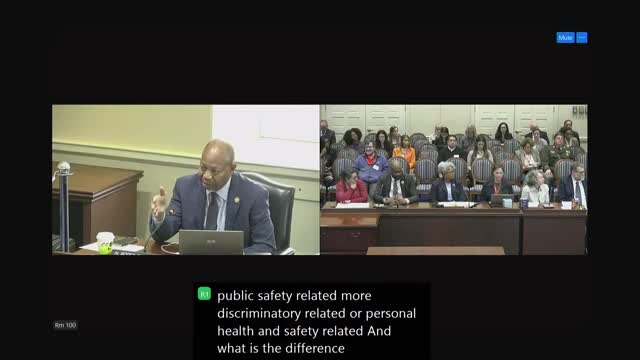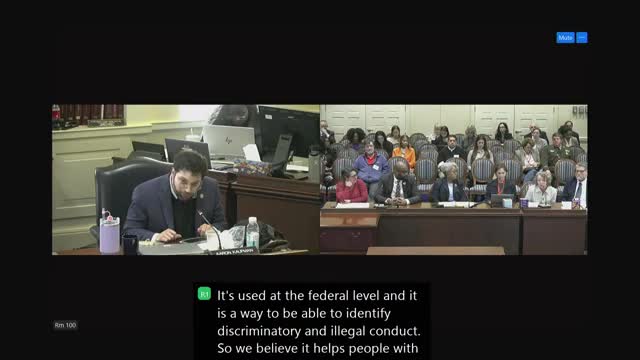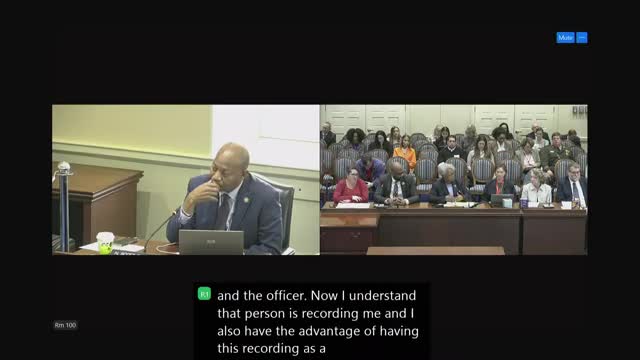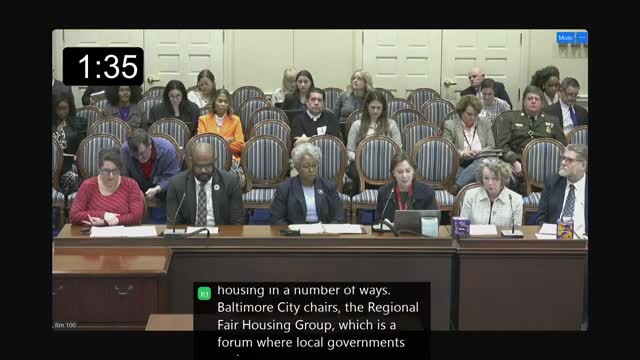Article not found
This article is no longer available. But don't worry—we've gathered other articles that discuss the same topic.

Committee hears bill to make prison phone calls free, sponsors say state cost could be smaller than fiscal note

Bill to allow audio recordings in fair-housing tests advances after wide support from civil-rights groups

Omnibus criminal bill would cut cannabis mandatory minimums, add firearms felonies; public defenders and prosecutors differ

Delegation presses for tougher penalties for attacks on 9-1-1 centers and other critical infrastructure

After false-accusation case, committee weighs bill requiring state's-attorney review before charges for APS and child-welfare workers

Lawmakers consider clarifying forensic genealogy rules after counties interpreted 'reasonable investigative leads' differently

